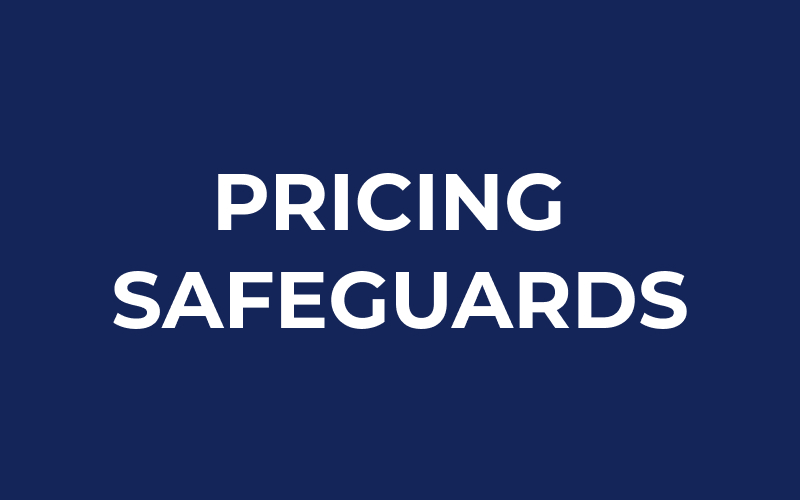
Pricing safeguards
Pricing safeguards refer to the measures that ecommerce and retail businesses take to prevent and detect illegal or harmful pricing practices, such as price fixing, resale price maintenance, and predatory pricing. These measures are put in place to ensure fair competition and protect consumers from harmful pricing practices.
Pricing safeguards in ecommerce and retail
In ecommerce and retail businesses, pricing safeguards can include:
Price monitoring: Businesses can use software or other tools to monitor prices in the market and detect any unusual or illegal pricing practices.
Compliance training: Businesses can provide training to employees on legal and ethical pricing practices, to ensure that they are aware of the rules and regulations that they need to comply with.
Price transparency: Businesses can be transparent about their pricing strategies, so that customers can understand the reasons behind the prices they are paying, and that competitors can also be aware of them.
Price discrimination detection: Businesses can use software and other tools to detect and prevent price discrimination, which is when different prices are charged to different customers based on their characteristics.
Compliance auditing: Businesses can conduct regular audits to ensure that they are complying with laws and regulations related to pricing, and take corrective action if necessary.
Price collusion detection: Businesses can use software or other tools to detect and prevent price collusion, which is when businesses coordinate their pricing strategies to the disadvantage of consumers.
By implementing pricing safeguards, ecommerce and retail businesses can ensure compliance with laws and regulations related to pricing, and protect consumers from harmful pricing practices. This can help them to maintain a fair competition and increase trust in their brand.
Summary
Pricing safeguards are measures taken by ecommerce and retail businesses to prevent and detect illegal or harmful pricing practices. These measures are put in place to ensure fair competition and protect consumers. Some examples of pricing safeguards include: price monitoring, compliance training, price transparency, price discrimination detection, compliance auditing, and price collusion detection. Implementing pricing safeguards can help ecommerce and retail businesses to ensure compliance with laws and regulations related to pricing, and protect consumers from harmful pricing practices, which in turn can help them to maintain a fair competition and increase trust in their brand.

